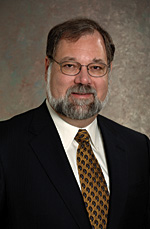
By Mark Barteau UD Research Office

We have chosen "Illuminating the Human Experience" as the title for this issue of UD Research featuring the arts and humanities. It is clear, though, that no single verb can capture the "action" or the impact of research and creative endeavors in these fields. We seek not just to illuminate, but to discover, describe and evoke; to apply, communicate and share; to relish, connect and contrast the richness and complexity of the human experience.
That experience does not always fit neatly within the boundaries of traditional academic disciplines like history, philosophy, language or fine arts. The arts and humanities have always been multi-disciplinary. And the University of Delaware is leading the way in creating new ways to foster the connections between them — through initiatives in environmental humanities and material culture studies, as well as through the establishment of centers like the Interdisciplinary Humanities Research Center and the Delaware Design Institute.
But the arts and humanities do more than illuminate the human experience, they nurture the soul! Think of the last time you took a break from daily life for a day or a week. While you likely relied on one or more marvels of technology — a plane, an automobile, a GPS device — to help you reach your destination, odds are that you sought rejuvenation by experiencing the wonders of the natural world or of human creativity and experience: a performance, a museum, a historical site, an architectural masterpiece. Such explorations connect us to the world beyond ourselves, to experiences shared and imagined, to accomplishments and failures that inspire and guide us. They both reveal and sustain the human spirit.
Just as Nature stimulates inquiry but requires stewardship, so too do the legacies that civilization has bestowed upon us. Yet it seems to be human nature to take such gifts for granted, to forget that the garden needs tending. We routinely communicate with descriptions, allusions and phrases of Shakespearean or biblical origin, but with little awareness of why or how these have become touchstones of our common experiences.
To quote one 20th-century U.S. president, Harry S. Truman: "The only thing new in this world is the history that you don't know." An overstatement to be sure, but one that reminds us of the wealth of the human experience. That experience is far richer than the classical western canon — we shortchange ourselves and the generations we would educate if we do not develop and cultivate knowledge of the rich contributions of those who have traditionally fallen outside it. Our commitments to the preservation of cultural heritage are global — and fundamental to our Path to Prominence.™
As you read this issue of UD Research, I am confident that the multi-disciplinary and multi-cultural nature of our scholarship, education and creative activities in the arts and humanities will shine throughout. And when you hear occasional suggestions that a liberal arts education is an un-affordable luxury in this technology-dominated era, remember that the liberal arts are neither monolithic nor static. They are very much alive; indeed they are both a source and a measure of the vibrancy of human society, past, present and future. What could be more essential?